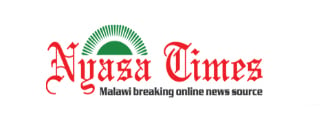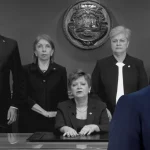For African leaders to promote Tobacco Harm Reduction (THR) strategies, they first and foremost must have a good understanding of tobacco control relative to their local context so that they can be able to effectively contribute to strategy discussions.
This has been emphasised by THR-Malawi Programmes Coordinator, Sahan Lungu in an exclusive interview, adding that African leaders, including Malawi’s, need to develop and implement policies and regulations that support THR.
“They must be policies that improve access and availability of feasible and acceptable THR interventions, while limiting underage access, rather than blanket prohibition,” he said. “They need to strengthen healthcare systems by sourcing or committing funding to public health initiatives that develop health infrastructure which supports cessation and ensures availability of THR resources.”
He further noted that, at the same time, healthcare workers should be trained on the science and strategies of Harm Reduction in order to counter misinformation and provide or secure funding for THR research and development, thus strengthening the context-specific evidence base on THR.

He added that government administrations need to support public awareness campaigns that accurately inform the masses about THR, and that international partnerships need to support Africa’s tobacco control efforts by funding tobacco control research and strengthening cessation programs, including awareness initiatives and training programs for healthcare workers.
There is also a need for resource mobilisation for public health and tobacco control programs, stakeholder mobilisation, advocacy on key tobacco control policy issues, and for the establishment of crop diversification programs or alternative livelihoods for tobacco farmers.
On the most effective ways to engage African communities in tobacco control initiatives, Lungu observes that governments must invest in empowering local players in championing context-based, culturally relevant, feasible and evidence-based tobacco control strategies.
“These strategies can include community mobilisation, mass media campaigns and accessible cessation programs. Emphasis should be made on active participation of communities in all initiatives to ensure ownership for sustainable cessation efforts.”
In integrating tobacco control into existing health and social structures, Lungu says tobacco cessation interventions can be offered in collaboration with other health initiatives (eg. HIV/Aids, tuberculosis, malaria, among others), while also providing cessation services at primary, secondary and tertiary levels of healthcare.
“The African continent also boasts a robust network of community healthcare workers who, despite existing public health challenges, do an incredible job of bridging the gap of access to healthcare. Empowering healthcare workers with training and resources will have a positive impact.”
He added that Africa’s voice in global tobacco control discussions can be amplified by strengthening regional collaboration through working together in sharing best practices and presenting a united front during global tobacco control discussions — and funding African-led research and data to ensure a robust evidence base for tobacco products, harms and interventions.
Africa also needs to align with the World Health Organisation (WHO) Framework Convention on Tobacco Control (FCTC), which addresses the rising trend of youth tobacco use in Africa, and to comply with the tenets of the MPOWER policy package.
Lungu suggests that the WHO FCTC should “lobby for and help strengthen the capacity of governments in surveillance and monitoring tobacco use, to ensure there are robust legislations on age restrictions for tobacco sales and reduced access to loose cigarettes by the youth.”
The WHO FCTC should also help governments understand the nature, scope and consequences of the youth tobacco use epidemic, and lobby for streamlining of tobacco control measures in public health, in order to enact regulations on advertising and promotion of tobacco cigarettes.
“In Africa, cigarette advertising and promotion still uses language and visuals that are appealing to the youth, thus encouraging smoking initiation. Public education and media campaigns that use strong appeals of fear and reason on the dangers of tobacco use and the importance of quitting, can also be effective,” emphasised Lungu.
The THR expert proposes strategies that can be implemented to prevent youth initiation and promote tobacco-free lifestyles, which include policies that reduce youth access to tobacco products, integrating awareness and education on the dangers of tobacco use into school curricula, and empowering existing social health structures in communities to engage with youth on tobacco use and support for quitting.
“This includes community-based organisations, community health workers, parents and peer groups,” says Lungu, while suggesting that the WHO FCTC can support African farmers in transitioning to alternative livelihoods — by supporting policy and initiatives that incentivise the switch to and research for alternative crops that are economically viable and sustainable.
He includes that developing market infrastructure and supporting value chains for alternative crops is important, as well as strengthening the capacity for agriculture extension services through training and support.
Economic incentives that he suggests include:
- Relocating subsidies for tobacco inputs to those of alternative crops
- Direct cash grants, loans and inputs to cover costs of switching to alternative crops
- Developing value chains that make alternative crops more appealing
- Specialised training and support for farmers on profitable alternative crops.
For African governments to effectively implement tobacco tax policies to reduce consumption, they need to strengthen monitoring of compliance to existing tobacco tax regimes, regularly update tobacco taxes to cover the impact of inflation and/ economic growth, and simplify the tobacco tax structure to ensure clarity and compliance.
Potential revenue streams from tobacco taxation include export duty on raw tobacco, excise taxes on tobacco products, taxes on the sale of tobacco products and taxes on new/emerging tobacco products like vaping devices and shisha.
“These can be used to fund health programs, tobacco control initiatives, alternative crops and other development priorities,” says Lungu, an expert in global THR initiatives.
Follow and Subscribe Nyasa TV :

















